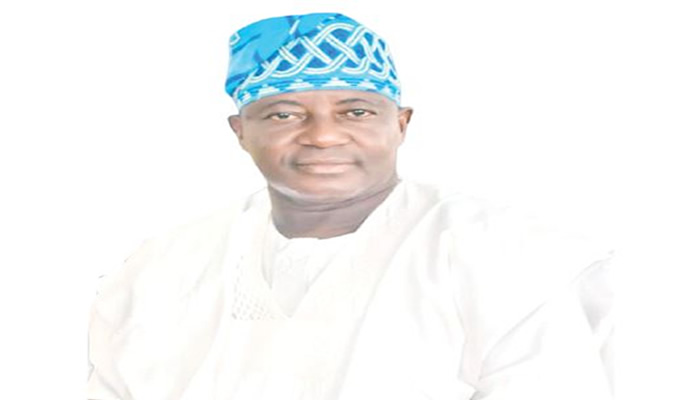
The Chairman, Association of Local Governments of Nigeria, Ogun State chapter, Babatunde Emilola-Gazal, speaks with AYOOLA OLASUPO on local government autonomy, among other issues
You have always been involved in the distribution of relief materials to vulnerable persons in your domain. Are such initiatives still in place at the moment?
The state government has set up committees at different levels. At the local government level, the council chairman is the head of the committee on palliative distribution and the committees have not started working. They have been named and very soon, I am sure they will start the assignment to ensure that the way it was intended by the Presidency is achieved.
How are the local governments involved in the sharing of those palliatives?
That is why I said the state governor has set up committees and the local government chairmen are the heads of the committees at the local level. Obviously, by the time the distribution starts, the local governments will be fully involved in the distribution of the palliatives.
What are the local governments in the state doing on the current state of infrastructure such as roads and water supply to ensure the well-being of residents?
Concerning this, we keep talking about local government autonomy and it must work. The first thing that has to be done is that the revenue allocation has to be reviewed. As of today, the local governments in the country take 20.6 per cent of the revenue accruals into the federation account. The state governments take about 36 per cent and the Federal Government has about 52 per cent. The 20.6 per cent allocation accruing to the local government is grossly inadequate for the duties of the local governments and this is because the local governments also have a lot of things to do.
How many primary and secondary schools does the Federal Government control? How many federal centres does it have? These facilities are shared between the states and the local governments, yet the Federal Government takes the lion share of the revenue generated for the federation. The first step is to review that sharing formula and ensure that more money goes to the grassroots (the local governments). If that happens, local governments should be able to discharge the responsibilities ascribed to them by the Nigerian Constitution.
They will be able to carry out those responsibilities more effectively. Unfortunately, not all local governments have good sources of internally generated revenue; that is why you find out that many local governments cannot discharge their responsibilities. For me, there has to be a change in the sharing formula of the federal allocation and more should be given to the local governments.
Some people have clamoured for financial and administrative autonomy for local governments with the claim that they have been unable to cater to the people at the grassroots in accordance with their constitutional mandate. What can you say about this?
That is why I said the first step is to change their financial autonomy and there ought to be revenue allocation. Let’s take it that the constitution recognises joint allocation at the local government. The constitution cannot be talking about allowing joint accounts and we start asking why governors or states operate joint accounts. It is allowed if it is in the constitution; I know it is. That means any state that operates a joint account has not done anything contrary to the provision of the constitution. So, the constitution has to be reviewed holistically. As I said, financial autonomy will be made easier if what comes into the coffers of the local governments from the federation account is more than what we are currently getting.
What are your thoughts about the claim that the weak local government system is responsible for the poor infrastructure, insecurity, poor healthcare facilities and other social services affecting the country?
There is no doubt about it that even if the local government is very strong, governance will be better. Of course, it is the closest to the people. Every day, people go to the council chairmen’s offices for one problem or the other. What percentage of those people can go to the office of the governor? The local government chairman is the one whose neighbours will run to for their basic problems. Those are even outside constitutionally provided responsibilities. If there are more funds, these responsibilities will be more effective. I concur with the school of thought that if the local government system is stronger and more effective, some of our problems will be solved in a better way.
Primary education, public health centres, and maintenance of roads among others are some of the basic duties of the local governments. Why are some of these things neglected by some local governments?
If we must carry out those responsibilities, we need funds. For instance, Lagos State is a very rich state with resources and at the local level, the internally generated revenue sources are many and varied. Apart from what comes in from the federation account, the local governments rely on IGR which enables them to perform some of these responsibilities easier than other states. A lot of local governments do not have enough IGR sources. Sometimes people have said we are over-governed maybe in a way. We have about 10 or 50 local government councils. That means we will also need staff in all those local government councils. The personnel cost is one, the administrative cost is another.
Based on the above, people have said that state governors often deliberately refuse to conduct local government elections. Don’t you think such will deny the grassroots of the effective political leadership they desire?
I agree with that.
Recently, you led a team to apologise to Governor Dapo Abiodun on behalf of the Chairman of Ijebu-East LGA, Wale Adedayo, for accusing him (the governor) of diverting LG funds. Is it true that local governments in Ogun State have not received a federal allocation in the last two years?
What comes from the federation account into the local government account in the state is grossly inadequate to meet the frontline charges of the local governments. What comes from the federation account into the coffers of the local governments is grossly inadequate to meet the responsibilities of the councils. So, the state government augments and ensures that salaries are paid on a monthly basis. There are other gray areas in other intervention funds and we have amicably resolved all the issues, but from the federation account, the direct allocation is not enough. What the state has made us understand is that those augmentations make the local government indebted to the state.





